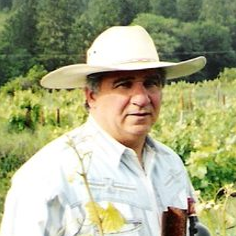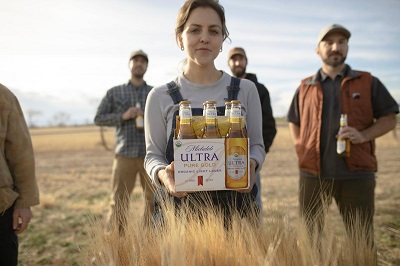California Certified Organic Farmers (CCOF) held their annual meeting virtually last week, with over 160 attendees hearing how the organization plans to advance agriculture where organic is the norm.
Phil LaRocca, Chair of CCOF's Board of Directors, opened the event “Cultivate & Nourish,” discussing the past year and challenges for organic farmers, producers, and the CCOF Foundation.

Phil LaRocca, Chair, CCOF Board of Directors
“I think to be in the organic industry, you need to be resilient. We were resilient, and we came back. And here we are today,” LaRocca said.
That resiliency, he said, is propelling CCOF forward as they adopt a new strategic plan for the next five years. The goal is for CCOF to become the beacon and champion of organic integrity in the evolution of organic food and agriculture.
“I think to be in the organic industry, you need to be resilient. We were resilient, and we came back. And here we are today.” Phil LaRocca
Kelly Damewood, CCOF’s CEO, expanded on goals and overcoming 2020 challenges. “With the start of this new year, CCOF has set a bold new goal that 30 percent of California’s farmland will be organic by 2030. We know it will take hard work to get there, but that’s nothing new for organic farmers.”
Kelly Damewood, CEO, CCOF
She outlined CCOF’s 2021 plans to achieve their goal as follows:
- Expanding Opportunities for Small Organic Ranchers. In partnership with ranchers, policymakers, and farm and environmental groups, CCOF is working to create economic opportunities for small organic ranches.
- Supporting the Transition to Organic. CCOF is advocating for support for farmers transitioning to organic and for funds to incentivize organic farming practices. The three-year transition period to become organic is a barrier for some farmers.
- Investing in Organic School Meals. CCOF is looking to expand opportunities for organic farmers by bringing organic foods to school cafeterias. The Farm-to-School program prioritizes funding for schools that partner with organic or transitioning farms.
“With the start of this new year, CCOF has set a bold new goal that 30 percent of California’s farmland will be organic by 2030. We know it will take hard work to get there, but that’s nothing new for organic farmers.” -Kelly Damewood
Damewood said the CCOF Foundation's partnership with Anheuser-Busch and their Michelob ULTRA Pure Gold Contract for Change program was a positive move in helping growers and farmers. “The program assists farmers during the transition process by paying a premium for transitional and organic products and provides the needed technical training for farmers to succeed,” she said.

The CCOF Foundation partnered with Anheuser-Busch and the Micheolb ULTRA Pure Gold Contract for Change program
As part of a question-and-answer period during the event, Damewood responded to numerous questions about CCOF’s plans to support a diverse and equitable organic movement, the new administration’s potential impact on organic, and California’s comparable-to-organic certification for cannabis.
Special guest David Robles, program manager for food justice organization Food What?! and former participant in the CCOF Foundation’s Future Organic Farmers program, shared his family’s story of farming and resilience and reflected on his own commitment to reimagining the food system.
David Robles, Program Manager, Food What?!
Robles told attendees, “Food is a form of communication between us and our environment because food communicates to us the health of the world around us by reflecting that health onto our physical/spiritual bodies. When we cultivate healthy food systems, we are cultivating a culture of love and connection with the earth and each other.”
Robles continued: “The next time you see one of my people hunched over in a strawberry field, be sure to ask yourself: is that an American farmworker, or is that a displaced farmer? The folks you call farmworkers are, in fact, land stewards. They carry with them generations of agricultural knowledge. Combine that with an incredible work ethic and a desire to improve conditions for future generations and what do you get? You get fed.”
David Robles
The virtual participants joined Robles in the kitchen as he cooked up a recipe to nourish body and soul.
"When we cultivate healthy food systems, we are cultivating a culture of love and connection with the earth and each other." -David Robles
The featured dish, enchiladas placeras, is typical of his family’s home state of Michoacán, Mexico. The audience watched as Robles chopped, chatted, and even danced, and viewers were invited to create their own enchiladas using his recipe and tutorial video. While cooking, he spoke of his own experiences as a Chicano man working to bring together farmers, processors, and eaters to work towards a more just food system.
David Robles's featured dish enchiladas placeras
“As we like to say at Food What?!, this work must be grounded in love and rooted in justice. We grow food, so food can grow us. We’re growing food together, the food of our culture, through methods passed down to us by our ancestors,” he said. “We’re cooking the food together, learning how to collaborate on projects. And we’re eating the food together, an action which in and of itself is an affectionate conversation.”
The CCOF Foundation helped support Robles's education at UC Santa Cruz through the Future Organic Farmers program. Since the program’s launch in 2014, the CCOF Foundation has allocated more than $700,000 directly to people pursuing a career in organic agriculture across the United States.






